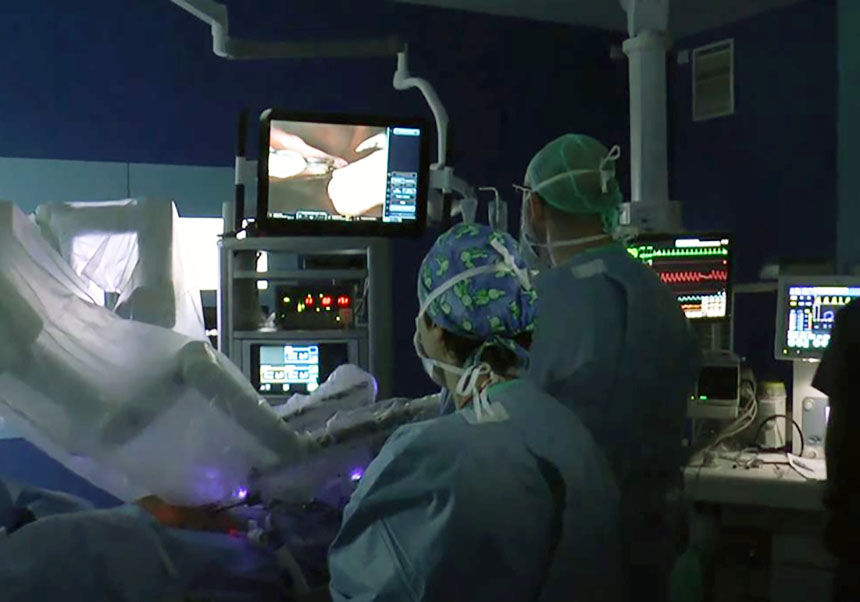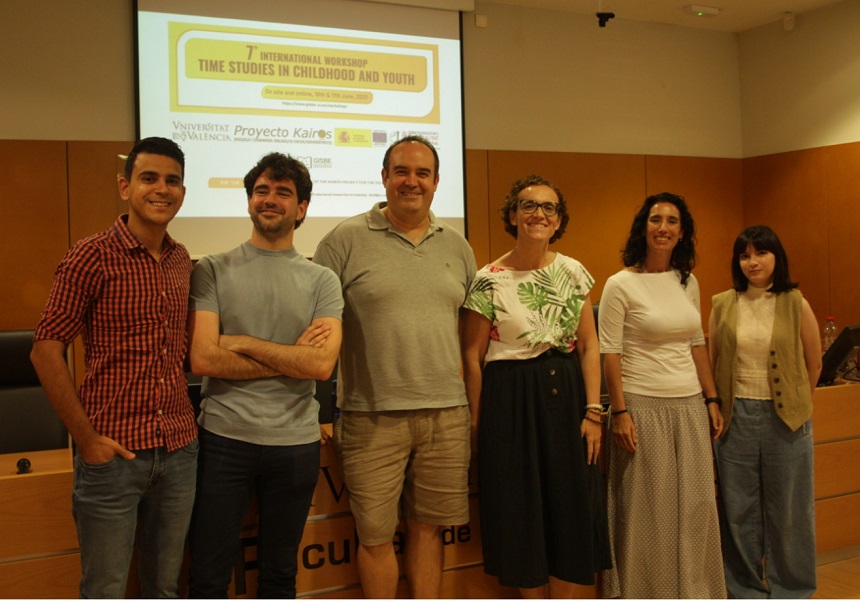Safer robotic surgery with artificial intelligence from the SIRA Project
- Marketing and Communication Service
- Olga Denia Moreno
- November 7th, 2025

A team from the Institute of Robotics and Information and Communication Technologies (IRTIC) at the University of Valencia is leading the development of an artificial intelligence system designed to improve the precision and safety of robotic surgery. The project, called SIRA (Sistema Inteligente de Reconocimiento Anatómico – Intelligent System for Anatomical Recognition), will enable real-time identification of anatomical structures and possible foreign objects in the area being operated on, and will provide support for medical decision-making during operations. The initiative involves collaboration with the Research Foundation of the General University Hospital of Valencia (FIHGUV) and the technology company Lãberit.
The SIRA system, currently under development, will function as an add-on assistant to the robotic surgical platform used in each procedure. By employing advanced computer vision techniques, it will be able to recognise organs and anatomical structures, as well as detect and alert to the presence of foreign objects – such as misplaced instruments or gauze – thereby reducing the risk of complications for patients.
In the first phase of the project, which has recently been completed, the research team collected over 3,000 hours of intraoperative recordings of robotic procedures in gynaecology, urology, thoracic surgery, general surgery and digestive tract surgery. This extensive dataset has been crucial for training and validating SIRA’s artificial intelligence (AI) algorithms. In addition, the team has developed a surgical image labelling system that will facilitate assistance during all types of robotic interventions.
The SIRA system has been conceived as an innovative add-on for already well-established robotic surgery platforms, such as Da Vinci. Its aim is to enhance surgeons’ decision-making during operations through the use of artificial intelligence.
The project, launched in February 2025, has a budget of nearly half a million euros and is funded by grants for experimental development projects in artificial intelligence and for promoting the development of sectoral data spaces by the Valencian regional government, within the framework of the Recovery, Transformation and Resilience Plan. This investment, co-financed with Next Generation EU funds, is part of the digital transformation strategy of the Valencian Community.
The SIRA consortium brings together the expertise of its three partners to address this multidisciplinary challenge: IRTIC coordinates the project and leads the technological development, drawing on its experience in artificial intelligence and computer vision; FIHGUV contributes clinical expertise and is responsible for labelling the surgical images that feed the AI; and Lãberit provides the technological infrastructure and will be responsible for integrating the system into hospitals, guaranteeing data security and preparing it for large-scale clinical use.
“The collaboration between the university, the public hospital and the technology company represents a strong commitment to healthcare innovation”, says José Vicente Riera, IRTIC researcher and principal lead of SIRA. “Combining their capabilities will help improve medicine and position the Valencian Community at the forefront of precision surgery”, he adds.
The integration of the system as a complementary module in the robotic surgery platforms of several Valencian public hospitals forms part of the project’s objectives.
Categories: Ciencias Médicas , Ciencias Tecnológicas
















